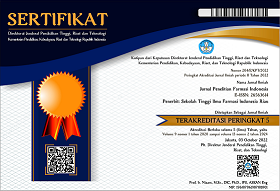The Importance of Teachers in Developing Students' Attitudes Toward Appropriate Dress in High-Level Schools
Abstract
This study examines Islamic religious education teachers' influence on student dress. The school's code of conduct emphasizes ethical behavior and dress. Some kids wore long, flowy, non-transparent outfits, while others did not. Students are told to dress appropriately for Muslim students, but reality differs. This study examined how Islamic religious education and morality teachers at SMA Negeri 1 Bangka promote dress ethics. This study used qualitative research. Semi-structured Islamic religious education teacher interviews provided the data. Descriptive analysis followed. Field notes, documentation, and observations supported the data. This study found that Islamic religion education and morals teachers play different roles in student clothing ethics. They teach students about Islamic attire and morals. By regulating student wear, penalizing those who break the dress code, and advising on proper attire, they must establish a good and respectful learning atmosphere. They should also know student fashion trends and the cultural and religious aspects of student dress. Finally, teachers should educate pupils about Islamic dress ethics and allow them to participate in dress ethics activities and discussions. This study suggests Islamic religious education and morals Teachers shape student dress ethics. They should know student fashion trends and the cultural and religious aspects of student apparel. Proactiveness is also needed..







.png)





